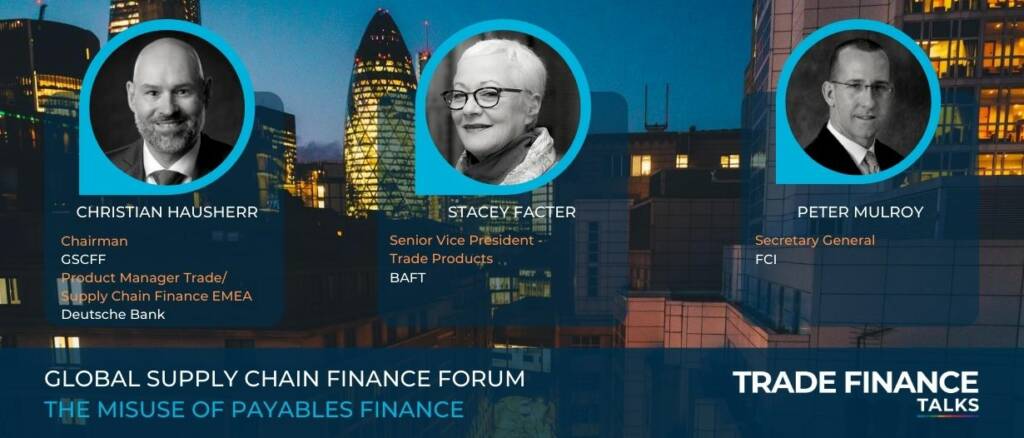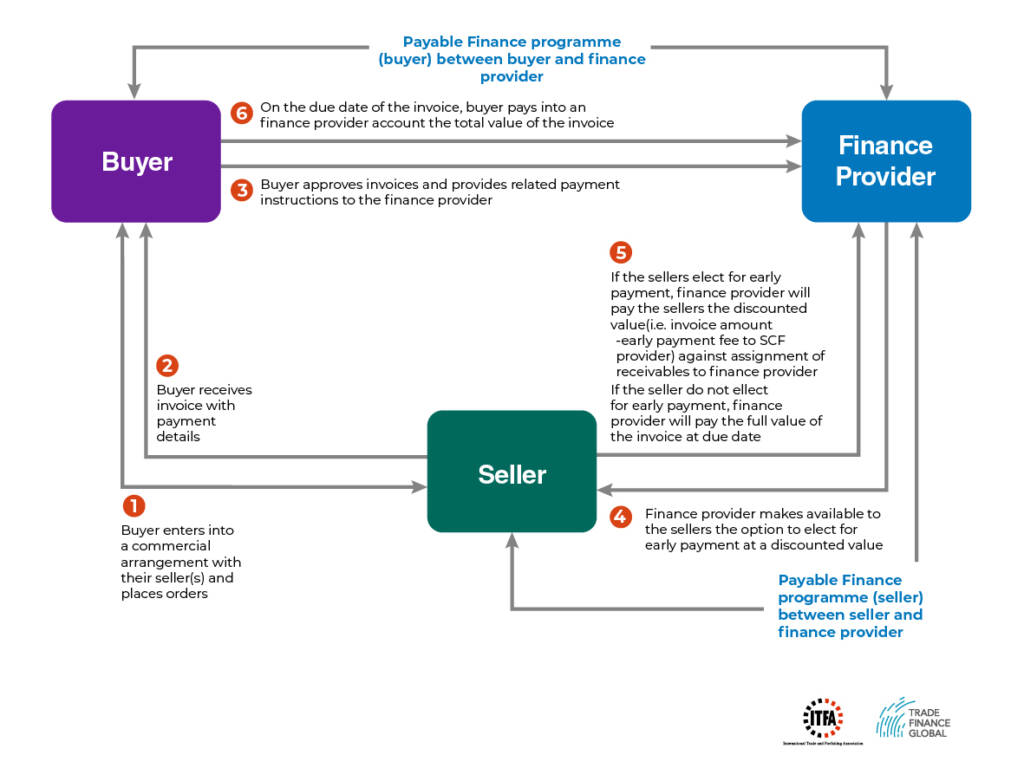Payables finance is changing, often driven by the demands of corporates, looking for inclusive and sustainable programmes when considering who to select for supply chain financing (SCF) programmes.
As media partners for BCR’s Supply Chain Finance Summit 2021, TFG reports exclusively from Day 2 of their event, attracting just under 200 participants.
Following the Chairman’s welcome by John Bugeja, Managing Director, Trade Advisory Network, the morning started with a discussion on the increasing role of environmental, social and governance (ESG) considerations in SCF. The sustainable SCF market could reach $800bn in coming years, according to industry predictions, which pushes the onus onto lenders for ensuring their portfolios include provision for ESG amongst supply chains and payables finance programmes. Eugenio Cavenaghi, Head of Working Capital Solutions for Continental Europe at Santander updated the audience on how the bank was carrying out independent ESG assessments of suppliers using rating agencies and implementing an SCF incentive scheme. Given recent spectres suggesting corporates can misuse the use of SCF programmes to extend their payment obligations, the morning’s debate focused on the internal and external journeys around implementing a global SCF programme.
“Engineering for a better world”
One corporate finance manager, at one of Germany’s largest food suppliers, gave a step-by-step account on their decision making process when it came to finding an SCF partner.
The firm, which boasts a quarter of global milk processing production, made the decision to start using SCF in 2019, as part of a wider company strategy to reduce net working capital.
The firm evaluated the merits of whether to use an established bank, or alternative liquidity provider / SCF platform, ultimately deciding partnering with the former.
The corporate believed that the larger bank offered the necessary global presence when it came to supplier onboarding, and ability to successfully integrate the IT elements of a project of this magnitude. They also recognised that the bank would also offer more hope for a sustainable long term partnership.
While the firm acknowledged there were challenges in undertaking such a project, the common goal of reducing working capital united the team.
ESG has been touted as a tool to build resilience, address corporate and end-consumer demands and provide financial and non-financial incentives to suppliers. The pandemic has certainly heightened the appetite for ESG in supply chain finance, with much more on the horizon to support adaptively agile supply chains in the longer term.
Elsewhere at BCR’s Supply Chain Finance Summit, Taiju Hashimoto of MUFG Bank and Chris Wohlert of Wells Fargo explored the evolution of SCF in Asia Pacific. David Loseby of Rolls Royce also discussed the importance of collaboration when it comes to agile supply chains.































